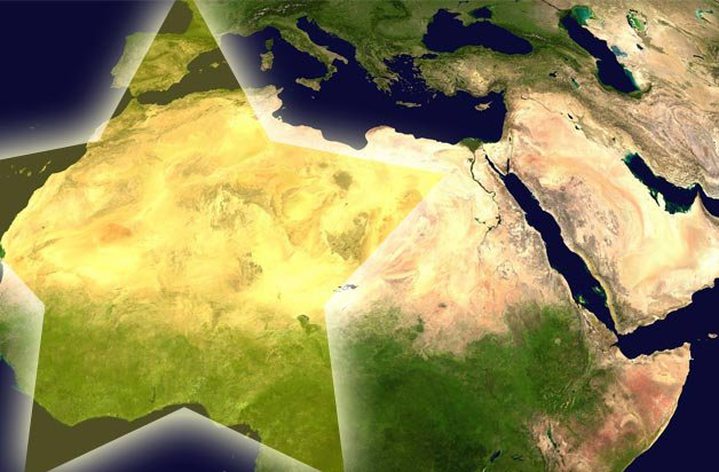Emerging Markets Earn Stripes With Stars

GLOBAL REPORT—From Africa to the Middle East, developing nations are tackling an urgent need for stricter hotel standards as domestic and foreign tourism markets blossom.
The rise in hotel classification systems aims to bring some order, consistency and, perhaps most importantly, transparency to the marketplace, sources said.
While some countries such as South Africa are busy tightening star rating criteria, others such as Tanzania and Ethiopia are beginning to consider introducing schemes. And others still, such as Nigeria, are still a long way off.
Government and tourism players in these countries generally believe a rating system provides a vital industry framework and yardstick for consumers.
As global hotel chains rush in to tap sub-Saharan Africa’s unprecedented economic growth, harmonized national ratings are sorely absent, said Dozie Odigboh, managing director of Lagos, Nigeria-based hospitality and tourism industry consultancy ImpulseCraft Limited.
“Most African countries, Nigeria included, do not have a methodical classification system.
“Nigeria already has one of the most expensive room rates in the world, and inspection and grading criteria for hotels and the hospitality industry are vital to inform consumers,” Odigboh said.
“Star classification constitutes an indicator, a crucial piece of information that should give confidence to the consumer before, during and after their stay. By way of ratings, consumers have an appropriate expectation for a particular experience and service,” he said.
Standardization and credibility
Odigboh believes credible hotel rating schemes are critical to African nations as they look to develop domestic and foreign markets.
“It provides hotel industry standardization, allowing vendors or go-betweens, like tour operators and travel agencies, to have a reference to use in their business catalogues, for negotiating bulk rates with hotel chains or when preparing their travel deals,” he said.
“Ratings are also a vital marketing instrument. A hotel’s star grading enables it to promote its specific characteristics and additional services, based on that star certification. It is also a useful tool in measuring the development and standard of tourism infrastructure and commitment to business travel, which is a significant index in measuring inbound tourism in Nigeria.”
The cost of being rated does not inhibit hoteliers in developing countries any more than it does in developed nations, Odigboh said.
“Hoteliers are mostly in support of the idea and are willing to shoulder the cost, encouraged by the potential advantage to their business,” he said.
South Africa stands out as a pioneer on the African continent in introducing effective state-controlled rating system, Odigboh said.
In 2011, the Tourism Grading Council of South Africa—a business arm of the Tourism Ministry—introduced a stricter rating system, which sees participatory hotels reviewed annually by its grading assessors.
The publically stated aim of the TGCSA is to develop higher standards and force an end to leniency in awarding ratings to second-rate establishments.
Mandatory application for the new star ratings prompted a rush of refurbishments and overall facelift for the industry.
“Every one of our hotels was refurbished and upgraded and a higher star-grading obtained,” said Arthur Gillis, CEO of South-Africa based hospitality group Protea Hotels.
Stars, as an indication to customers of the group’s “service culture,” will play a vital role as the group embarks on a major expansion program in sub-Saharan Africa, he said.
The facelift hopes to help the South African hotel industry out of a slowdown caused by oversupply and under-demand, which saw overall occupancies fall from 70.4% in 2007 to 60% in 2012, according to data from STR Global, sister company of Hotel News Now.
Despite the council’s strong industry representation, with some 8,000 hotels and guesthouses graded, some believe it still falls short of the ideal.
“The grading council has ownership over the use of stars and further attracts hotels by access to South African Tourism's marketing exposure,” said Wouter Hensens, hotel industry consultant as well as academic dean and GM of Stenden South Africa hospitality school.
Forcing participation
“Ideally, legislation should be further enhanced as participation is too low to effectively control the quality of accommodation in South Africa. The system provides a lot of flexibility with only 21 minimum standards,” Hensens said.
“Governments cannot ignore the need for quality control of what should be considered to be the foundation of the tourism experience,” he added. “The biggest challenge that many destinations face is that hotel rating is voluntary, resulting in only a percentage of the hotels buying into and using the system.”
Furthermore, he believes rating systems worldwide are in need of stricter standards and compulsory enforcement.
“With a continued growth of online review platforms, such as TripAdvisor, hotel classification systems need to step up if they want to continue to justify their existence.”
For years, the Egyptian Tourism Federation has been tackling an antiquated and erratic hotel rating system, which prompted Jim Dunn, former president of Tour Egypt to comment in 2011:
“We might furnish a hotel with bargain basement furniture, place cheap posters on the walls and serve a bland buffet and walk away with a 5-star rating. Such is the nature of the Egyptian hotel rating system.”
The Egyptian government evidently has resolved to upgrade hotels and align them with global standards.
In May, it launched a 12-phase plan for new classification; hotels have to comply by 2016.
While no rating system is perfect, in the fractured global hotel classification landscape, some standardization clearly beats none.
The Indian Ministry of Tourism introduced a voluntary scheme in 2009 for reclassifying hotels from 1 to 5 stars, and heritage categories from Heritage Basic to Heritage Grand.
Jose Dominic, CEO of southern India hotel group CGH Earth, said the changes have undeniably reaped increasing sophistication, as hoteliers push the envelope to upgrade and win more stars.
“Hotels are constantly pushing toward higher and higher categories,” he said, “but a serious defect in the rating system is that it is invariably based on physical infrastructure, and does not necessarily represent value.”





